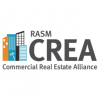How To Sell Your Business Tax Free By Jeff Riddell
How To Sell Your Business Tax Free
The first in a three-part series on 1031 Exchange
By Jefferson F. Riddell, Esq.
Most people are aware that they can sell vacant land and rental properties via 1031 Exchange and defer payment of capital gains taxes. Fewer people are aware that, if they sell an active business–be it a manufacturing facility, store or professional practice–there is also an opportunity to take advantage of the 1031 Exchange.
Simply stated, 1031 Exchange is a provision in the tax code that allows you to defer the capital gains tax on the sale of real estate that has been used as an investment, rental or business property–as long as you reinvest in a “like-kind” replacement property. “Like kind” simply means exchanging any real estate for real estate, other than personal use properties.
The trick in a business exchange is to allocate the purchase price among the assets being sold, so that the portion of the purchase price allocated to the real estate will become the figure to be matched by the value of replacement property.
But, you ask, why can’t we do a 1031 Exchange on the whole business? Theoretically you might be able to do an exchange on the entire business, but in reality it is almost impossible. The personal property assets included would not be “like kind” with replacement real estate, and how many business sellers want to acquire exactly the same type of business in another location anyway? But if you wanted to, you would need to find replacement personal property that would be “like kind” with each item of personal property included in the business sale. This is almost always impossible, and any amount allocated to good will could never be replaced in a 1031 Exchange because the IRS takes the position that good will of any existing business is unique and can never be replicated (be “like kind”) with good will of another business.
Therefore, unless your tax advisor feels otherwise, plan to exchange just the real estate where the business operated. On the closing statement for the business sale, have the closing agent move the real estate allocation amount to a seller debit line item and call it “1031 Exchange Proceeds To Escrow.” Of course, before the closing, you must retain a Qualified Intermediary (QI) company to take care of the 1031 aspects, and sign an Exchange Agreement before the closing. The money then goes directly to the QI company to be held in escrow until the closing on one or more replacement properties occurs.
Be sure, however, to go over any business sale 1031 Exchange plans with your tax advisor. Since he should have a good, overall understanding of your tax position as a seller of the business, he is best suited to help you decide whether or not a 1031 Exchange will be sufficiently beneficial. For example, if the business has loss carry-forwards, the seller may not incur very much tax. A 1031 Exchange is only warranted where there is sufficient tax savings to make it worthwhile since the funds will need to be reinvested in replacement property to achieve the tax savings. Losses set off against gains will result in tax savings without the proceeds being encumbered with the obligation to reinvest in like-kind property.
Farms, ranches and dairies are a prime candidate for 1031 Exchange since real estate is the primary asset transferred when such a business is sold. Where the seller’s homestead is also on the property being sold, it may be possible to achieve both the main home exemption of up to $250,000 for a single seller ($500,000 for a married couple filing a joint return) under Section 121 of the Internal Revenue Code and 1031 Exchange tax deferral on the rest. This may require separate surveys for the homestead and 1031 parcels (and possibly even a separate appraisal of each), but the tax savings can often be substantial. As always, be sure to discuss plans like this with your tax advisor.
Also, don’t forget that the owner of the business (who owns real estate), farm, ranch or dairy must also be the owner of the 1031 Exchange replacement property. If it is a corporation, then the corporation will need to own the replacement property, and the same applies to a limited liability company (LLC), partnership, trust, etc. The only exceptions are for living trust ownership where the living trust can be on one side of the exchange and the beneficiary of the living trust on the other side. Also, a single-member LLC can be on one side of the exchange and its single member, whether an individual or an entity, can be on the other side of the exchange. There are also strategies for partnership breakups where not all of the partners want to continue as partners in the replacement property, but that is beyond the scope of this article.
To learn more about 1031 Exchange, visit www.US1031.com or call (877) 455-2628 for a free consultation.
This article is for information purposes only and does not constitute legal advice.
Jeff Riddell is a Sarasota, Florida attorney specializing in 1031 Exchanges. He holds a real estate broker’s license, has published numerous articles on real estate transactions and most recently authored a book on titled “21st Century Real Estate Investing.” Address: 3400 S. Tamiami Trail, Sarasota, FL 34239. Telephone: (877) 455-2628. Website: www.US1031.com.
Copyright © 2011 REAL Magazine
Links to this article are encouraged
Tags: 1031, 1031 Exchange, Certified Exchange Specialist, Jeff Riddell, Jefferson Riddell, U.S. 1031 Exchange Services


























 Twitter
Twitter LinkedIn
LinkedIn Facebook
Facebook Youtube
Youtube RSS
RSS